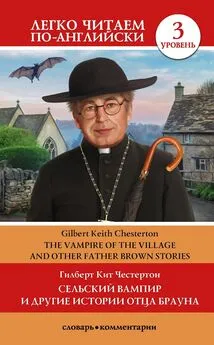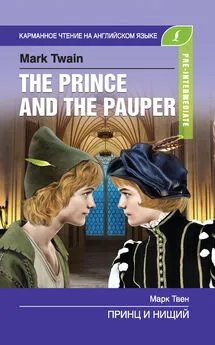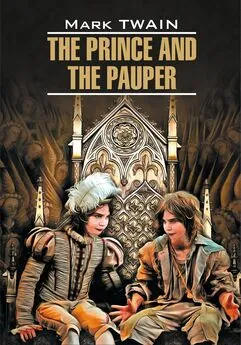Oscar Wilde - The Happy Prince and Ohter Tales
- Название:The Happy Prince and Ohter Tales
- Автор:
- Жанр:
- Издательство:неизвестно
- Год:неизвестен
- ISBN:нет данных
- Рейтинг:
- Избранное:Добавить в избранное
-
Отзывы:
-
Ваша оценка:
Oscar Wilde - The Happy Prince and Ohter Tales краткое содержание
The Happy Prince and Ohter Tales - читать онлайн бесплатно полную версию (весь текст целиком)
Интервал:
Закладка:
balloon [bə'lu:n ] joyful ['dζOif(ə)l ] occasion[ə'keiζ(ə)n]
`Well, really,' exclaimed a small Fire-balloon, `why not? It is a most joyful occasion, and when I soar up into the air I intend to tell the stars all about it. You will see them twinkle when I talk to them about the pretty bride.'
`Ah! what a trivial view of life (ах, какой банальный взгляд на жизнь; trivial — незначительный, тривиальный; view — вид, пейзаж, взгляд, мнение) ! said the Rocket; `but it is only what I expected (но только этого я и ожидала) . There is nothing in you (в вас ничегошеньки нет) ; you are hollow and empty (вы неискренние и пустые; hollow — пустой, полый; неискренний, ложный) . Why, perhaps the Prince and Princess may go to live in a country (ведь может статься, что Принц и Принцесса могут отправиться жить в такую страну/местность; perhaps — может быть, возможно) where there is a deep river (где будет /протекать/ глубокая река) , and perhaps they may have one only son (и, возможно, у них будет единственный сын) , a little fair-haired boy (светловолосый маленький мальчик; fair — белокурый, светлый) with violet eyes like the Prince himself (с такими же глазами фиалкового цвета, как у Принца) , and perhaps some day (и, возможно, в один прекрасный день; some day — когда-нибудь в будущем) he may go out to walk with his nurse (он может быть отправится на прогулку со своей нянькой) ; and perhaps the nurse may go to sleep (и, возможно, что нянька заснет) under a great elder-tree (под большим кустом: «деревом» бузины) ; and perhaps the little boy (и, возможно, что мальчуган) may fall into the deep river and be drowned (упадет в глубокую реку и утонет: «станет утонувшим»; to drown — тонуть, топить) . What a terrible misfortune (какое ужасное несчастье; terrible — страшный, ужасный) ! Poor people, to lose their only son (бедные /люди/, потерять своего единственного сына) ! It is really too dreadful (это действительно очень ужасно; dread — страх, ужас) ! I shall never get over it (я /никогда/ этого не вынесу: «не переберусь через это») .'
trivial ['triviəl ] fair-haired ['feəheəd ] dreadful ['dred∫(ə)l]
`Ah! what a trivial view of life! said the Rocket; `but it is only what I expected. There is nothing in you; you are hollow and empty. Why, perhaps the Prince and Princess may go to live in a country where there is a deep river, and perhaps they may have one only son, a little fair-haired boy with violet eyes like the Prince himself, and perhaps some day he may go out to walk with his nurse; and perhaps the nurse may go to sleep under a great elder-tree; and perhaps the little boy may fall into the deep river and be drowned. What a terrible misfortune! Poor people, to lose their only son! It is really too dreadful! I shall never get over it.'
`But they have not lost their only son (но они же не потеряли своего единственного сына; to lose (lost) — терять) ,' said the Roman Candle (сказала Римская Свеча) ; `no misfortune has happened to them at all (с ними вообще не случилось никакого несчастья) .'
`I never said that they had (я вовсе и не говорила, что они /потеряли/) ,' replied the Rocket (ответила Ракета) ; `I said that they might (я сказала, что они могли бы /потерять/) . If they had lost their only son (если бы они уже потеряли своего единственного сына) there would be no use (то не было бы никакого толку) in saying anything more about the matter (в том, чтобы говорить /что-нибудь/ еще об этом событии; matter — вещество; дело, неприятность) . I hate people (я ненавижу людей) who cry over spilt milk (которые плачут над пролитым молоком = слезами горю не поможешь; to spill (spilled, spilt) — проливать) . But when I think (но когда я думаю о том) that they might lose their only son (что они могли бы потерять своего единственного сына) , I certainly am very much affected (я действительно очень сильно волнуюсь; to affect1 — влиять, волновать, to affect2 — притворяться, принимать вид, affected1 — страдающий, взволнованный, affected2 — показной, притворный) .'
happen ['hæpən ] might [mait ] affected [ə'fektid ]
`But they have not lost their only son,' said the Roman Candle; `no misfortune has happened to them at all.'
`I never said that they had,' replied the Rocket; `I said that they might. If they had lost their only son there would be no use in saying anything more about the matter. I hate people who cry over spilt milk. But when I think that they might lose their only son, I certainly am very much affected.'
`You certainly are (конечно же) !' cried the Bengal Light (вскричал Бенгальский Огонь) . `In fact (на самом деле) , you are the most affected person (вы самая взволнованная/нарочитая особа) I ever met (которую я когда-либо встречал; to meet (met) — встречать) .'
`You are the rudest person (а вы — самый грубый человек) I ever met (которого я когда-либо встречала) ,' said the Rocket, `and you cannot understand (и вы не можете понять) my friendship for the Prince (моего дружеского расположения к Принцу; friend — друг, friendship — дружба, дружелюбие) .'
`Why, you don't even know him (как же, вы его даже не знаете) ,' growled the Roman Candle (проворчала Римская Свеча; to growl — рычать, ворчать) .
`I never said I knew him (я вовсе и не говорила, что знаю его; to know (knew, known) ),' answered the Rocket (ответила Ракета) . `I dare say (полагаю; dare — сметь, отважиться) that if I knew him (что если бы я знала его) I should not be his friend at all (я бы вовсе не была его другом) . It is a very dangerous thing (это очень опасно: «опасное явление»; danger — опасность, угроза) to know one's friends (знать своих друзей) .'
friendship ['frend∫ip ] growl [graυl] dangerous ['deindζərəs]
`You certainly are!' cried the Bengal Light. `In fact, you are the most affected person I ever met.'
`You are the rudest person I ever met,' said the Rocket, `and you cannot understand my friendship for the Prince.'
`Why, you don't even know him,' growled the Roman Candle.
`I never said I knew him,' answered the Rocket. `I dare say that if I knew him I should not be his friend at all. It is a very dangerous thing to know one's friends.'
`You had really better keep yourself dry (вам бы лучше, действительно, /постараться/ остаться сухой) ,' said the Fire-balloon (сказал Огненный Шарик) . `That is the important thing (это самое важное /дело/) .'
`Very important for you (очень важное для вас) , I have no doubt (не сомневаюсь: «у меня нет никаких сомнений») ,' answered the Rocket (ответила Ракета) , `but I shall weep if I choose (но я буду рыдать, если я этого захочу; to choose — выбирать; предпочитать) ;' and he actually burst into real tears (и она действительно разразилась самыми настоящими слезами; to burst — взрываться; давать выход чувствам) , which flowed down his stick (которые полились по ее палке; to flow — течь, литься) like raindrops (как капли дождя; rain — дождь, drop — капля, слезинка) , and nearly drowned two little beetles (и чуть не затопили двух маленьких жучков; nearly — почти, едва) , who were just thinking (которые как раз подумывали) of setting up house together (о том, чтобы начать вести /вместе/ семейную жизнь: «устроить вместе домик»; to set up — помещать, основывать, учреждать) , and were looking for a nice dry spot (и подыскивали хорошее сухое местечко; spot — пятно; место) to live in (для жилья: «в котором жить») .
important [im'pO:t(ə)nt ] actually ['ækt∫(υ)əli ]
Читать дальшеИнтервал:
Закладка:
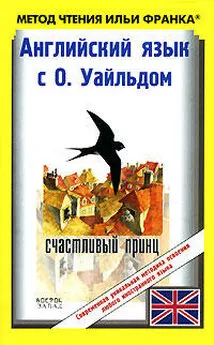
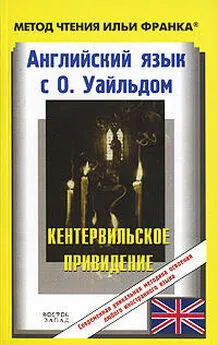
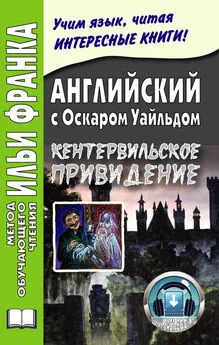
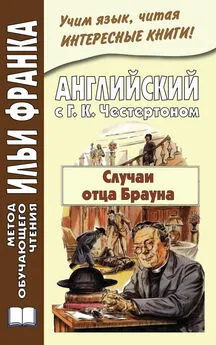
![О Генри - Принцесса и пума [The Princess and the Puma]](/books/1076182/o-genri-princessa-i-puma-the-princess-and-the-pum.webp)
